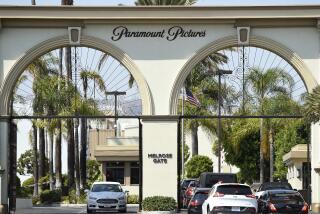Sold by Allied : It’s Back to Basic Lasers for Apollo
- Share via
Four years ago, Allied Corp. bought a little Chatsworth company called Apollo Lasers for $9.8 million, hoping Apollo would successfully make and market Allied’s new laser technology.
It didn’t work out that way. The technology didn’t sell, Apollo’s losses mounted and its work force was cut from 111 to 48 in the past year alone.
Last week, after a year of trying, the New Jersey-based Allied disposed of Apollo in a kind of fire sale. For about $3-million worth of its own stock, Patlex Corp. of Westfield, N.J., walked away with the company, including $700,000 in cash on Apollo’s balance sheet and $500,000 in Apollo receivables guaranteed by Allied. Patlex has estimated Apollo’s book value at $3.4 million.
‘Significant’ Losses
Apollo had “significant” losses last year on revenues exceeding $5 million, said Apollo President Fred Burns. But Burns--and Patlex--are optimistic. They say the sale means Apollo will get back to the kind of business--basic gas and crystal lasers, particularly for scientific uses--it was in when Burns founded it in 1968.
Burns also said he hopes the sale will mark an end to the hard times that have beset the company since its acquisition by Allied in 1981. According to Burns, Patlex and others, the main problem during Allied’s ownership was that a strong market never developed for a laser technology devised by Allied, based on the mineral alexandrite.
“They invested heavily in the product and it just didn’t meet expectations,” said Burns.
Allied does not regret buying Apollo, said Allied spokesman Christina Pagano. The company just changed its strategy, she said.
Purchase Called Mistake
But others say the purchase was a mistake.
“Allied sought to become a major force in the laser industry, but they bought a company that was not a leader,” said Glenn Sherman, president of the Laser Assn. of America, a trade group. “Apollo’s always been a nice little company.”
According to Sherman, alexandrite was offered as a substitute for other kinds of crystals used to make lasers, and has some properties that traditional crystal lasers lack. Its main advantage is that it can produce lasers that can be tuned to a variety of precise wavelengths, which can be useful when lasers are employed to identify gases.
But Bob Pitlak, Apollo’s manager of laser products, said acceptance of the new technology has been slow. Sherman said one reason is that the quality of the alexandrite laser beam is generally not as good as other crystal lasers. Also, more traditional laser crystals, once in short supply, are now more abundant, further reducing potential demand for alexandrite, he said.
Patlex, like Allied, sees opportunity in the laser business, which is anywhere from a $500-million- to $4-billion-a-year industry, depending on how it is measured. Sherman said he expects the industry to grow quickly in coming years because new applications of laser technology are being discovered constantly.
The primary laser applications now are industrial--drilling holes in ceramic material, for example--and medical. Perhaps the best known example of a medical application is the use of lasers in cataract surgery.
Until it bought Apollo, Patlex did not make anything. It is mainly a patent holder and technology development company that owns 64% of a fundamental laser patent, the Gould patent, which has been the subject of protracted litigation. Apollo uses that patent, giving Patlex a manufacturing outlet.
Apollo officials said they also will continue to make some alexandrite lasers under license from Allied, but that they will place less emphasis on that business.
Litigation Insurance
Patlex Chairman Richard I. Samuel, who was a noted patent lawyer before he started the business, said the acquisition is a major step in diversifying his company.
Burns will continue as president of Apollo, and Patlex has named David McGuire, an engineer and Apollo’s director of licensing, as assistant to Burns.
McGuire said his company bought Apollo in case Patlex loses its court fight over who first invented the laser. In that event, McGuire said, Patlex still can survive.
More to Read
Inside the business of entertainment
The Wide Shot brings you news, analysis and insights on everything from streaming wars to production — and what it all means for the future.
You may occasionally receive promotional content from the Los Angeles Times.










